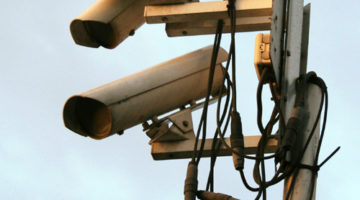On Tuesday, Feb. 16, Apple CEO Tim Cook wrote a letter to all Apple customers. In it, he detailed Apple’s fight with the federal government over digital privacy. It’s a fight that, as Cook said in his letter, has implications that reach far beyond the scope of this single case. The United States federal government should not be allowed expose the privacy of the American people.
But first, lets lay the facts out that led up to this discrepancy.
On Wednesday, Dec. 2, Syed Farook and Tashfeen Malik shot and killed 14 people at the Inland Regional Center in San Bernardino, California. It was the most devastating terrorist attack on American soil since 9/11 and struck the American psyche hard due to its proximity to the Paris attacks less than a month before.
After Farook and Malik were each killed in a shootout with police, the investigation into why the shooting happened began. It’s an investigation that’s now been shoved into the public eye as federal investigators as the FBI have recovered Farook’s iPhone.
The problem lies in the fact that Farook’s phone, much like most people’s phones, is locked. More than that, the data inside the phone is encrypted, so even if the feds were able to break into the phone, they would be unable to easily decipher any of the information inside.
Because of this, the feds have asked Apple to break into the phone for them, as well as retrieve and decipher the data inside. Last Tuesday, a federal judge ordered Apple to comply. It’s a common request for the FBI. A report from NPR found that prior to this very case, the feds have asked Apple open up iPhones around 70 times.
Apple had been complying, at least according to its lawyers, because it thought it had no other choice. But in October of last year, when the FBI asked Apple to break into the phone of a Brooklyn drug dealer, a federal judge decided to ask Apple if it had any objections to the order. The answer was a hard yes.
The reason that the feds can ask Apple to do any of this in the first place is because of something called the All Writs Act. Originally passed in 1789 and updated a few times thereafter, the act allows the federal government to compel any private company to carry out a search warrant.
The reason that federal judge Judge James Orenstein chose to ask Apple whether or not it had any objections to the order was largely because the Department of Justice was basing its case off a law from the 1700s. To him, and to Apple’s lawyers, it just didn’t make sense.
And for good reason, too.
A law written in 1789 can be used on a iPhone from 2015 because the law itself is hopelessly vague and absurdly broad. In its entirety, the All Writs Act reads:
“The Supreme Court and all courts established by Act of Congress may issue all writs necessary or appropriate in aid of their respective jurisdictions and agreeable to the usages and principles of law.”
That’s it. That’s the whole thing.
Now, while it may be necessary for the feds to break into this phone, a backdoor to the encryption protecting the phone is without a shadow of a doubt inappropriate. If Apple were to create this backdoor, there is no way that the FBI can guarantee that that backdoor only applies to this one device, nor can it guarantee that that backdoor stays out of the hands of malicious hackers.
And where this law may have applied in the past, it most certainly does not pass muster here. Today’s mobile phones are more than just phones. They hold so much information that in 2014, the Supreme Court acknowledged in Riley v. California that cell phones are immensely different from any kind of record-keeping that humans have ever used.
Back in the day, you might have just had a diary. Investigators may have found that diary and used it as evidence, but the odds of that happening were slim. Nowadays, it’s almost a given that investigators will find a cell phone.
With this in mind, the courts and the FBI have to recognize that the privacy of everyday Americans is worth more than the contents of that phone. The Fourth Amendment guarantees it, if not explicitly then implicitly. To ignore the importance of privacy in the name of national security is to start down a very slippery slope that doesn’t end well for anyone.
Stand with Apple. Stand for privacy.
The editorial staff can be reached at tbynum@sagebrush.unr.edu and on Twitter @TheSagebrush.











